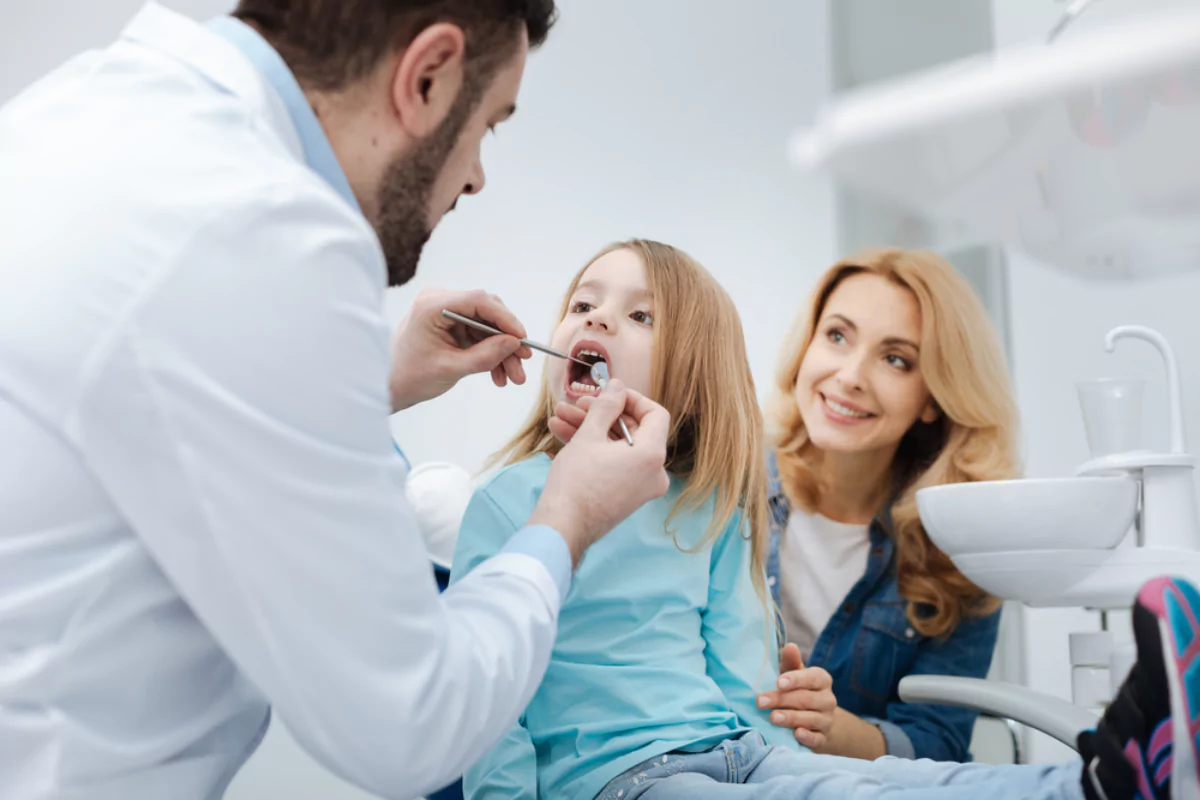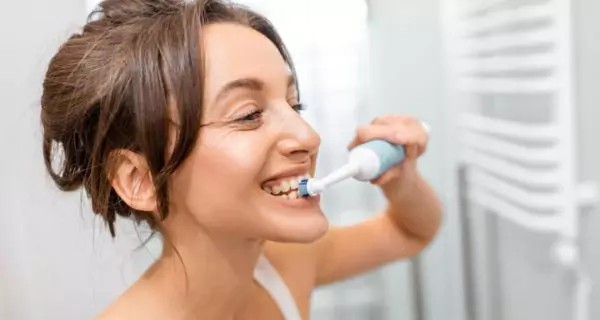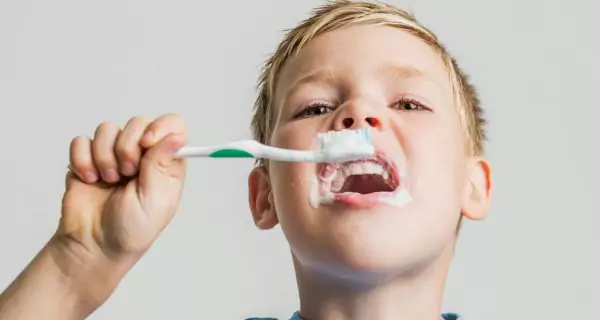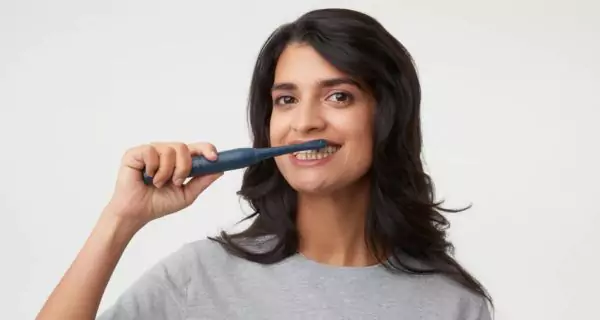Last Updated on: 19th September 2025, 12:29 pm
To choose the right tools for family dental care, it’s important to understand that every person is different in age, needs, and habits. There are a lot of options, but look for safe and effective tools like kids' electric toothbrushes, water flossers for teens with braces, and smart brushes for adults. The best tools are easy to use, age-appropriate, and encourage daily routines for every family member.
We know that the family is formed by people of all ages. There are babies, children, teens, adults, and, we shouldn’t forget, grandparents. With this in mind, the dental health needs are different for each family member.
It’s important to choose the right tools based on what each person truly needs. This not only helps build strong daily habits but also creates a more effective and meaningful family dental care routine.
Let’s take a look at how to do it and explore the best options for every stage of life.
What does family dental care really mean?
Many people think that brushing twice a day is enough, but in actuality it isn’t. Family dental care it’s a shared commitment to adapt routines, tools, and support for every life stage.
It’s about recognizing the family member’s unique needs:
- toddlers learning to hold a toothbrush
- teens with braces needing specialized cleaning
- adults managing stress or sensitivity
- seniors coping with dentures or dry mouth
As you can see, each person has different needs, and every single person in the family should understand these differences; in this way, it’s possible to adapt daily routines, build connections, share responsibility, and share lifelong values.
When families take oral health seriously together, they prevent future problems like cavities, gum disease, and expensive treatments, while building confidence, trust, and long-term well-being.
What dental technologies can families use at home?
Today’s home dental care tools are more advanced and accessible than ever before. Practically, there is a solution for each problem.
Smart toothbrushes, interactive apps, and improved formulas have been designed to make dental care easier, more effective, and personalized for every family member.
Why use dental technology at home?
If we use technology wisely, we find several benefits:
- Cleans better: We can try to do our best for cleaning properly, but tools like electric toothbrushes and water flossers can clean areas that are hard to reach and remove more plaque than manual tools.
- Keeps everyone motivated: Timers, fun apps, and reminders make brushing more regular and even fun, especially for kids and teens.
- Adapts to your needs: Some tools give real-time tips or are made for people with braces, sensitive teeth, or experience trouble using their hands.
What are the key at-home dental technologies?
A lot of new technologies aim to improve oral hygiene, making dental routines easier, more effective, and even fun.
Two major tools that are transforming how families care for their teeth at home are smart toothbrushes and water flossers.
Smart toothbrushes
These toothbrushes are electric, which makes it easier to move them around all teeth. Some models include Bluetooth, sensors, and connected apps that help guide your brushing and ensure you’re doing it correctly every time.
Some benefits include:
- Better brushing habits: Pressure sensors and timers help you brush gently and for the right time (2 minutes).
- Real-time feedback: The app shows which areas you missed and gives tips to improve your brushing technique.
- Motivation and fun: Games, rewards, and progress tracking make brushing more engaging, especially for kids and teens.
These features turn brushing into a smarter and more enjoyable routine for the whole family.
Water flossers
Water flossers or oral irrigators are tools that use pulsating water streams to clean between teeth and along the gumline. They’re easy to use, safe for braces or appliances, and more effective than traditional floss for many people.
Their benefits include:
- Excellent plaque removal: Water flossers can remove up to 99.9% of plaque and help reduce gum inflammation.
- Comfort and convenience: Most models are portable, quiet, and easy to use, making daily flossing more accessible for kids, adults, and seniors.
Water flossers are especially helpful for those with braces, dental implants, or limited hand mobility.
How to choose the right dental tools by age?
Every stage of life comes with its own oral challenges such that choosing the right dental tools depends on age, lifestyle, and individual needs.
What do kids ages 3 to 7 need for healthy teeth?
At this age, children learn by seeing their parents’ example and making brushing fun. The tools should be safe, colorful, and easy to use for those little hands.
- Electric toothbrushes with timers: toothbrushes like Oral-B Kids Electric Toothbrush with a Disney Magic Timer. It’s fun to use and plays music or lights up to guide kids through two full minutes of brushing.
- Fluoride toothpaste for kids: Children prefer a toothpaste with fruity flavors, choose a gentle one. Be sure it is safe for kids, even if your child swallows only a small amount.
- Educational brushing apps: Apps like Disney Magic Timer or Brush Monster turn brushing into a fun game or interactive story that keeps kids engaged.
- Xylitol gum (if age-appropriate): Older children can chew xylitol gum. For example, if they are at school and can’t brush their teeth after meals, chewing gum helps reduce the cavity-causing bacteria and stimulates saliva flow.
The key here is turning brushing into something they enjoy – not a chore– so they naturally build good habits.
What are the best dental products for ages 8 to 17?
At this stage, kids are becoming more independent but may develop bad habits like skipping brushing or consuming too much sugar. Braces, changing hormones, and diet all impact oral health.
- Sonic toothbrushes: These offer more effective cleaning than manual brushes, particularly in hard-to-reach areas or around orthodontic appliances.
- Water flossers: Waterpik Cordless Advanced is perfect for teens with braces. It removes plaque from spots that regular floss often misses.
- Enamel-strengthening toothpaste: Teens tend to consume more soda and acidic snacks. Toothpaste with fluoride or hydroxyapatite helps protect and repair enamel.
- Habit-tracking apps: Brushing apps with points, goals, or reminders help teens stay consistent without needing a parent to remind them.
This age group benefits from tools that support independence while making routines easier to stick to.
What should adults use for daily oral care?
Generally, adults have busy lives; between their jobs, parenting, and stress, their dental health can be affected. At this age, dental tools should be effective, efficient, and fit into busy routines.
- Smart electric toothbrushes: Philips Sonicare DiamondClean Smart connects to an app that tracks how you brush, providing tips while helping you avoid applying too much pressure.
- Mouthwashes for specific needs: Many adults deal with sensitivity, early gum issues, or plaque buildup. Using a targeted mouthwash can address those problems while refreshing breath.
- Dentist-approved whitening kits: For those who want a brighter smile without an in-office appointment, at-home kits are a great option, as long as they’re used as directed and recommended by a professional.
Even a simple upgrade in tools can make a big difference in keeping adult routines consistent and effective.
What Dental Care do Seniors Need Most?
With aging, seniors may face additional dental challenges, including systemic diseases impacting oral health, chronic dry mouth, receding gums, and the use of dentures or implants. Some also have problems with dexterity.
- High-pressure water flossers: These are excellent for cleaning gently but effectively around bridges, implants, or gum pockets. They’re also easier to handle than traditional floss.
- Mouthwashes for dry mouth (xerostomia): Dry mouth is common in seniors and can lead to cavities. Specialized rinses keep the mouth moist and more comfortable.
- Electric toothbrushes with ergonomic handles: Toothbrushes with larger grips and gentle motion make brushing easier for those with arthritis or hand weakness.
- Denture care products: Cleaners and adhesives designed for dentures are essential to prevent irritation, infections, and maintain comfort.
These tools can help seniors maintain independence and reduce the risk of dental complications later in life.
What can the whole family use for better dental care?
- DIOZO Toothbrush Holder with UV sanitizer: keeps up to 5 toothbrushes clean using UV light. It is ideal for shared bathrooms and reducing bacteria buildup.
- Crest gum and enamel repair toothpaste: strengthens enamel and supports gum health for kids (who can spit), teens, and adults. It is a great all-in-one option for daily use.
How does nutrition affect family dental health?
A healthy diet protects teeth, supports gum health, and even helps clean your mouth naturally. When the whole family shares nutritious meals, it benefits everyone’s oral health and overall well-being, too.
What foods are good for your teeth?
- Leafy greens and fibrous vegetables (like spinach or kale): They help clean teeth, stimulate saliva, and provide minerals like calcium and folic acid.
- Dairy products (milk, yogurt, cheese): Rich in calcium and phosphates, they help strengthen enamel.
- Nuts and seeds: They provide healthy fats, protein, and minerals that support tooth structure.
- Crunchy fruits and veggies (apples, carrots, celery): They help clean teeth surfaces and freshen breath.
- Water: It keeps the mouth hydrated and helps wash away food particles and acids.
What foods should be limited?
- Sticky or chewy candies: They cling to teeth and feed the cavity-causing bacteria.
- Sugary drinks and soda: Constant exposure erodes enamel and raises cavity risk.
- Processed snacks (like chips and crackers): They break down into sugars and often get stuck between teeth.
It’s important to make healthy choices every day and share them with family.
What daily habits reinforce family dental care?
Products and diet are only part of the picture. Habits make a difference over time, and they’re easier to build when the whole family becomes involved.
- Brush together twice a day: This makes learning easier for kids and keeps everyone healthy.
- Include flossing: Use floss picks or water flossers to clean between teeth, especially helpful for braces, limited mobility, or for those who have problems using conventional floss.
- Visit the dentist regularly: You can program dental visits together as a family, which is a way to support others and share quality time.
- Watch for habits: Both children and adults can develop bad habits. Thumb-sucking, nail biting, or teeth grinding are more common than you think. Taking action at the time can prevent long-term problems.
- Use visual tools: Charts, sticker boards, or brushing apps help track progress and celebrate success as a family.
Why is family dental care stronger with technology and good habits?
Family dental care works best when smart tools, healthy habits, and good nutrition come together. It’s not just aiming to have clean teeth; it’s about establishing strong routines that last a lifetime.
This Family Day, celebrate by brushing together, making smart choices, and building habits that keep every smile in your home healthy and confident.
Frequently Asked Questions
Can we all use the same toothpaste?
Do we all need to floss daily?
How do I handle a child afraid of the dentist?
Can babies get cavities?
Are smart toothbrushes worth it?
Voice and Search (Q&A)
How often should a family go to the dentist?
Every family member should see the dentist at least twice a year, or more often if recommended by your dental provider.
Do electric toothbrushes clean better?
Yes, electric toothbrushes clean more thoroughly than manual ones; they are easier to use for kids and seniors. Just be sure you brush all your teeth.
Can brushing too hard hurt my gums?
Yes, brushing too hard can damage your gums and enamel. Use a soft-bristled brush and gentle pressure.
Share
References
1. Burhenne, M., DDS. (2020, July 20). Foods for great oral health: 5 to eat and 5 to avoid. Healthline. https://www.healthline.com/health-news/foods-for-great-oral-health-5-to-eat-and-5-to-avoid
2. Ghoneim, A., D’Souza, V., Ebnahmady, A., Parbhakar, K. K., He, H., Gerbig, M., Laporte, A., Howard, R. H., Gomaa, N., Quiñonez, C., & Singhal, S. (2023). The impact of dental care programs on individuals and their Families: A scoping review. Dentistry Journal, 11(2), 33. https://www.mdpi.com/2304-6767/11/2/33
3. Jardim, J. J., Alves, L. S., & Maltz, M. (2009). The history and global market of oral home-care products. Brazilian Oral Research, 23(suppl 1), 17–22. https://doi.org/10.1590/s1806-83242009000500004
4. Jones, R. J., Johnson, I. G., & Morgan, M. Z. (2019). Family and friends: Supporting oral care in care homes. Gerodontology, 36(3), 258–266. https://onlinelibrary.wiley.com/doi/10.1111/ger.12404
5. Palanisamy, S. (2024). Innovations in oral hygiene tools: a mini review on recent developments. Frontiers in Dental Medicine, 5. https://doi.org/10.3389/fdmed.2024.1442887
-
Dr. Yeidy Carolina Mesa [Author]
DDS Yeidy Carolina Mesa Passionate Dentist | Advocate for Accessible Oral Health Education Graduating from Universidad CES in 2022, I am a dedicated general dentist with a lifelong passion for helping others and making a meaningful impact in the world. My journey into dentistry began at the age of 7, inspired by my own experience with braces and overcoming a fear of the dentist. This personal journey shaped my mission to help patients conquer their own dental anxieties and embrace a healthier,...
View all posts
-
Nayibe Cubillos M. [Medical Reviewer]
Pharmaceutical Chemestry |Pharmaceutical Process Management | Pharmaceutical Care | Pharmaceutical Services Audit | Pharmaceutical Services Process Consulting | Content Project Manager | SEO Knowledge | Content Writer | Leadership | Scrum Master
View all posts
A healthcare writer with a solid background in pharmaceutical chemistry and a thorough understanding of Colombian regulatory processes and comprehensive sector management, she has significant experience coordinating and leading multidisciplina...























